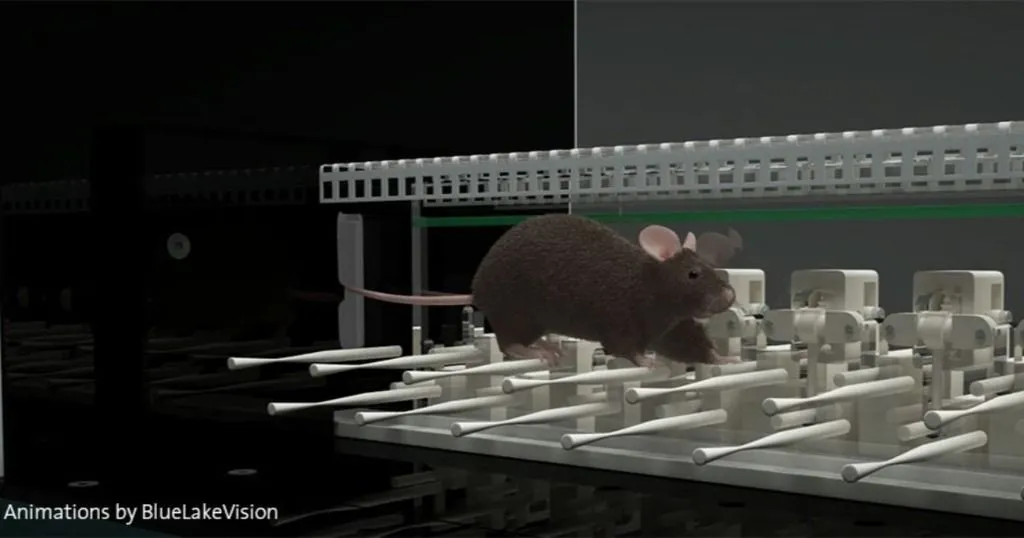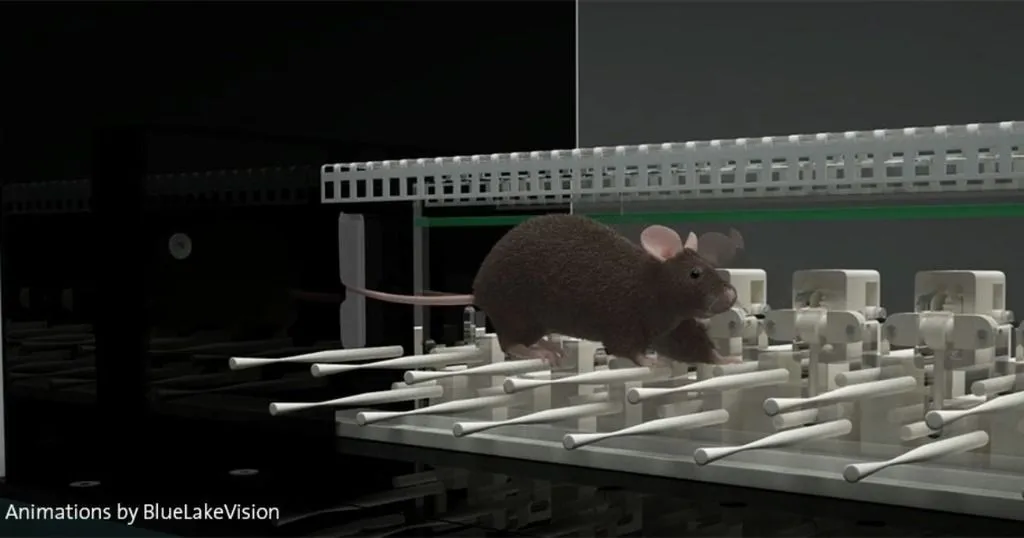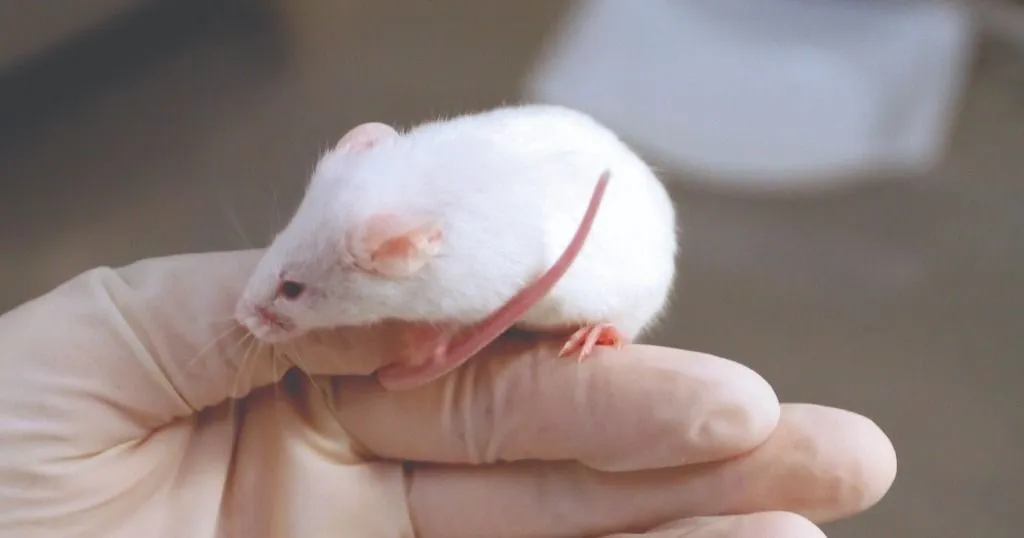Blog posts tagged with erasmusladder

19 Feb
animal behavior research
Gait and Locomotion
Testing motor coordination in a mouse model with muscular dystrophy
Muscular Dystrophy is a broad group of diseases recognized by the loss of muscle mass and strenght. Researchers tried to discover if gene therapy strategies can help with reducing symptoms.

05 Mar
animal behavior research
Alzheimer’s and Parkinson’s
Parkinson's disease research - Relevant measures in pre-clinical studies
Parkinson’s disease: the neurodegenerative disorder that affects mobility in a life-changing way. Learn more about relevant measures in pre-clinical studies.

13 Jan
animal behavior research
Autism Spectrum Disorders
Autistic mice have motor learning difficulties specific to the cerebellum
Autism is often associated with social behavior deficits and repetitive behaviors. However, motor abnormalities are also a part of the behavioral spectrum. Recent studies have implicated the cerebellum.

03 Jul
animal behavior research
Alzheimer’s and Parkinson’s
How to study ataxia
Ataxia is a common problem in Parkinson’s disease (PD), and many early onset Alzheimer’s disease patients (AD) also deal with it. Now there is a non-invasive test for mouse models.

23 Apr
animal behavior research
Alzheimer’s and Parkinson’s
Alzheimer's: prevent instead of cure?
Alzheimer’s disease (AD) is a huge public health issue as it affects a large part of the aging population. Neuropathology is studied primarily in the end stages of the disease. What about prevention?

17 Mar
animal behavior research
Alzheimer’s and Parkinson’s
10 behavioral studies on Alzheimer’s and Parkinson’s
This blog post features 10 interesting studies that use innovative techniques to study models of AD and PD and important underlying neuronal mechanisms.

27 Nov
animal behavior research
Gait and Locomotion
How to really challenge mice cerebellar plasticity
Jan-Willem Potters used the ErasmusLadder in his thesis research to study the role of specific mutations of plasticity in the cerebellar microcircuit of mice.

11 Sep
animal behavior research
Other (Animal)
Walking the ladder: testing the cellular source of motor functioning in mice
The cerebellum, our “little brain”, is all about motor control; more specifically, it’s about coordination, precision, and timing.